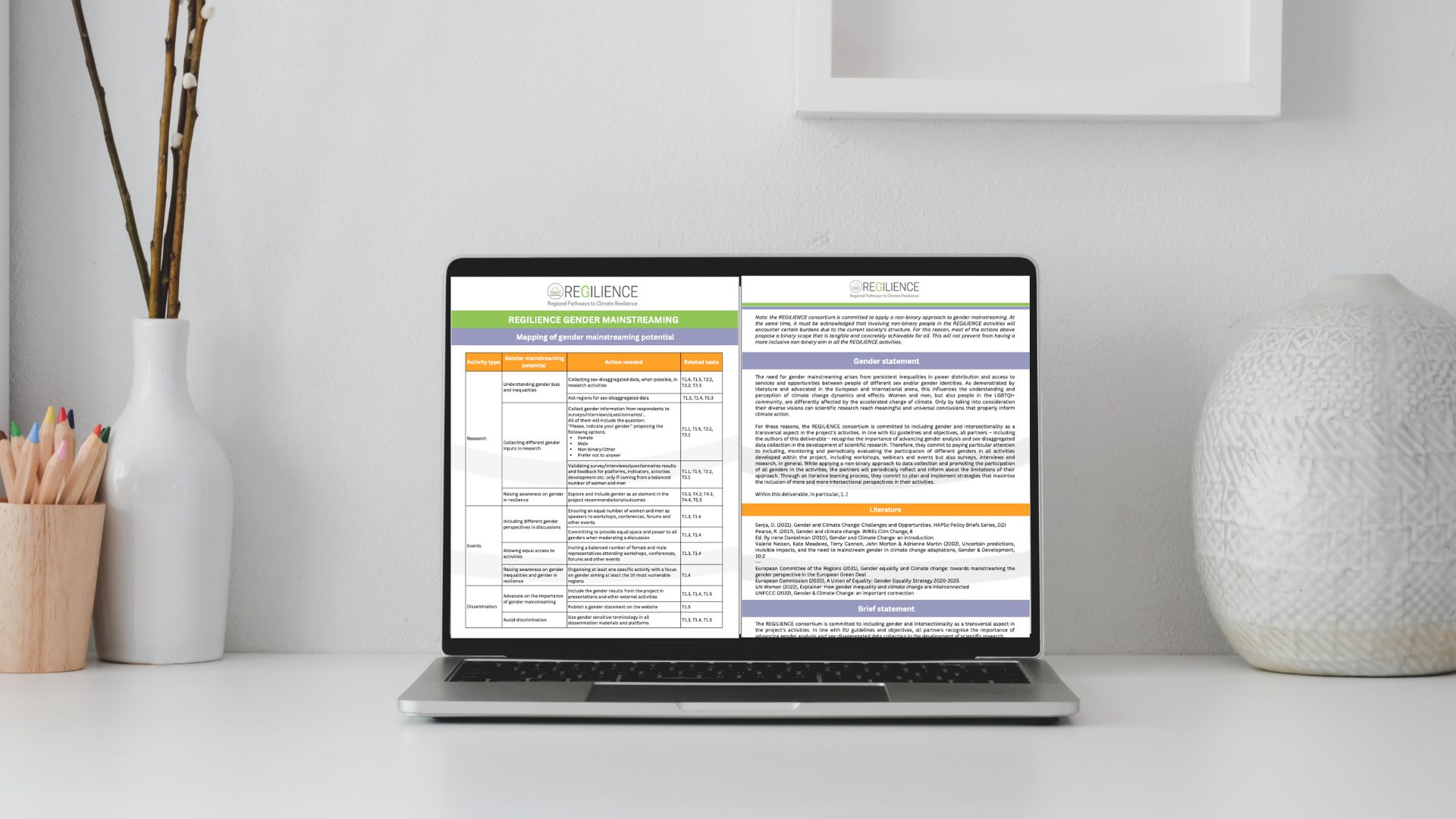
Gender plays a key role in resilience building and sustainable development. Vulnerabilities, exposure to risks, but also social capacities towards disasters are very much related to gender roles and norms*. Understanding these conditions and embracing a resilience approach that takes them into consideration leads to a more inclusive and sustainable environment where no one is left behind.
European projects have a great potential to contribute to an improved understanding of gender dynamics in resilience and disaster risk reduction by mainstreaming a gender-sensitive perspective in their activities. By involving many international and local stakeholders, while developing a significant amount of research, EU-funded projects have the capacity to standardise a new approach to innovation and research that raises awareness on gender biases and their implications, and that at the same time fights against them.
The REGILIENCE project is committed to including gender and intersectionality as transversal aspects in the project’s activities. In line with EU guidelines, the project’s consortium recognizes the importance of advancing gender analysis and sex-disaggregated data collection in the development of scientific research.
The project has set up a strategy for gender mainstreaming and created a working group on gender in order to guarantee that gender mainstreaming is considered throughout all the activities of the project. The strategy consists of 3 pillars:
Research:
- Collecting sex-disaggregated data, when possible, as well as asking our regions for such data;
- Collecting information on gender from interviews, surveys and questionnaires;
- Validating said surveys, interviews and questionnaires and feedback for platforms, indicators, activities development etc. only if coming from a balanced number of women and men.
Events:
- Striving for an equal number of women and men as speakers to workshops, conferences, forums and other events;
- Providing equal space and power to all genders when moderating a discussion;
- Inviting a balanced number of female and male representatives attending workshops, conferences, forums and other events;
- Organizing at least one specific activity with a focus on gender targeting up to 10 European regions.
Potential:
- Including the gender results from the project in presentations and other external activities;
- Use gender sensitive terminology in all dissemination materials and platforms.
Below you can find a downloadable version of the ongoing Strategy for Gender Mainstreaming of the REGILIENCE project. This strategy is a dynamic document, aimed to be updated regularly.
Would you like to know more about this activity, or be in touch because you conduct similar work? Please contact us!
* Alvina Erman, Sophie Anne De Vries Robbé, Stephan Fabian Thies, Kayenat Kabir, Mirai Maruo (2021) “Gender dimension of disaster risk and resilience: existing evidence”. International Bank for Reconstruction and Development / The World Bank